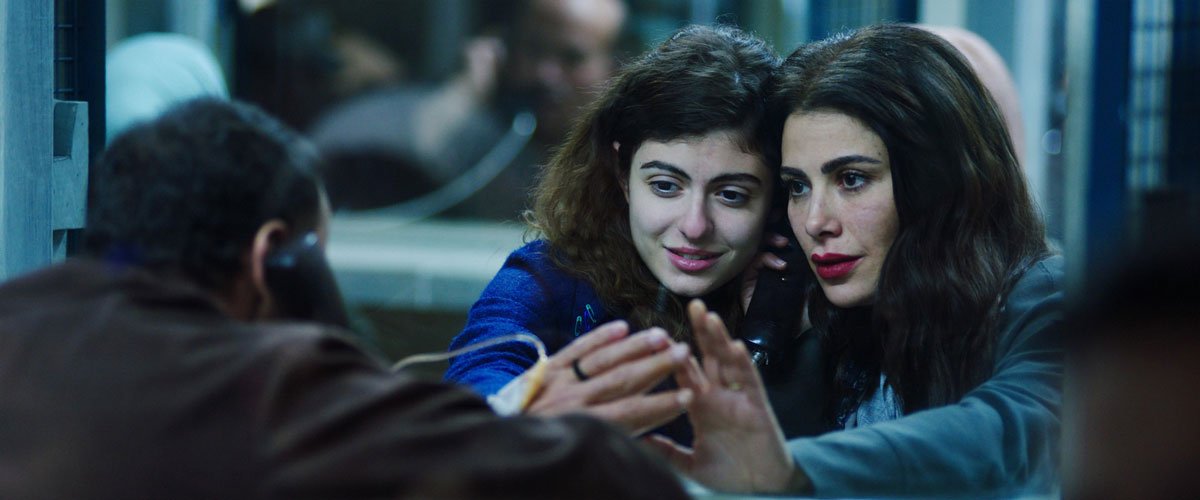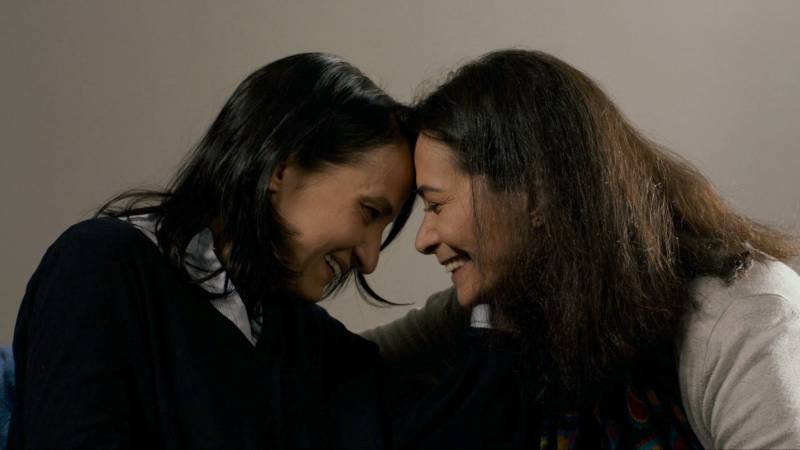The eight-year U.S. military occupation of Iraq inspired any number of narrative films by U.S. and U.K. filmmakers, most of them centered on soldiers. Kathryn Bigelow’s Oscar-winning The Hurt Locker and Nick Broomfield’s Battle for Haditha, notably, depicted Iraqi civilians with palpable empathy but still relegated them to the perimeter. Thankfully, the Arab Film Festival, which opened its 25th edition in person last night and continues online through Nov. 24, provides an Iraqi point of view.
London-based filmmaker Maysoon Pachachi sets her enveloping saga of life during wartime, Our River…Our Sky, in 2006. Explosions near and distant send jarring noise and lingering smoke into the sky, while Baghdad’s residents strive to pursue a sense of normalcy—going to school, looking for love online—despite their myriad personal traumas and everyday dangers. A fiction writer (played with great charm and heart by Darina Al Joundi), compelled to earn money by translating her neighbors’ entreaties to American authorities while raising her daughter with the erstwhile help of her mother, embodies the warmth that permeates the film.
Our River…Our Sky, which is receiving its U.S. premiere Nov. 20 at the Roxie, is one of the 26 films in the lineup (out of 47 altogether) directed by women. The female perspective of the Arab world is more than a refreshing aspect of the Arab Film Festival, though. It’s an essential element that chips away at the stereotypes and limited understanding many have of the Middle East.

Amira, which opened the festival at the Castro, may be written and directed by a man (the estimable Mohamed Diab), but its title character and protagonist is a young Palestinian woman. Amira (Tara Abboud) was conceived some 18 years ago with her long-jailed father’s sperm, which was smuggled out of prison under rare but not unique circumstances. She’s always revered him, despite their limited moments together across the years. Then a chunk of unexpected news dislodges the pedestal, propelling Amira to a reckoning with her identity.
The Palestinian experience is also at the heart of Ameen Nayfeh’s inviting feature debut 200 Meters, which imagines a loving family living in separate households separated by a checkpoint. When the son suffers an injury, his easygoing, law-abiding father ventures far outside his comfort zone to pay a smuggler to drive him to the hospital in Israel.


